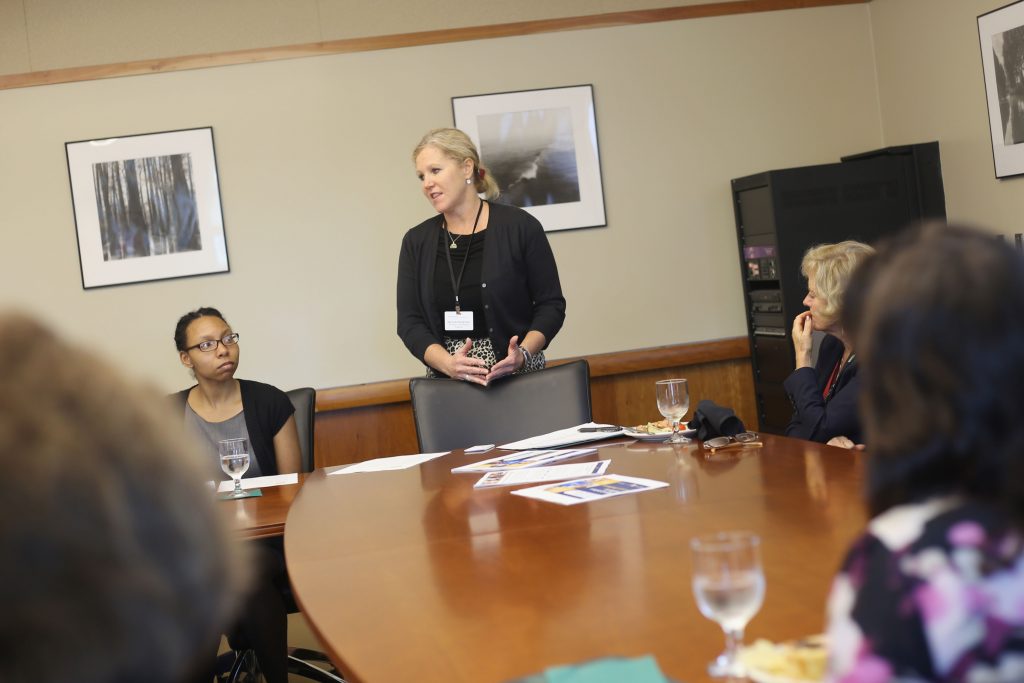
A mentorship program for struggling schoolchildren, spearheaded by New York Governor Andrew Cuomo and his mother, Matilda Cuomo, is now making its way to Binghamton University.
The Matilda Cuomo initiative, which matches disadvantaged and vulnerable students with volunteers from business and academia, was launched in September 2015. The program specifically provides life and career guidance to children in foster care or at risk of failing out of school.
The mentorship program is currently targeting fourth-, fifth- and sixth-graders, but is expected to grow with an increasing number of mentors. As the program enters the Binghamton area, New York state is looking to the College of Community and Public Affairs (CCPA) at BU to recruit faculty and staff for the initiative. The program requires a two-hour training session followed by a one-hour-per week commitment to mentoring local children.
According to Laura Bronstein, dean of the CCPA, the school is looking forward to being involved with the program and is partnering with the Promise Zone, a program that designates high poverty areas in New York state that need assistance in school services.
“We are very excited to be partnering on this initiative which benefits both the mentor and the mentee,” Bronstein said. “We will rely on our strong relationships with Broome County schools through the Promise Zone to help facilitate this program.”
BU will work with one or more local schools, depending on the number of mentors and mentees. The initiative is based on a model that helps motivate the children to stay in school and inspire them to take on responsibility in the community and the classroom.
All mentors are put through a background check and must commit to at least one academic year of mentorship. According to Bronstein, mentors and mentees will be carefully matched to create the best possible fit.
“Working collaboratively with the Broome County Promise Zone, those interested in serving as mentors will be matched with children in schools that are part of CCPA’s University-assisted community school effort, which aims to level the playing field for students from low-income families who lack some of the supports for academic success from which children from middle-class families benefit,” Bronstein said.
According to Bronstein, the CCPA is eager to see the positive results of this initiative.
“This is a new program for us at CCPA,” Bronstein said. “It dovetails well with many of our other initiatives where faculty, staff and students implement evidence-based practices that benefit our local community. In this case, mentors will be drawn from throughout the Binghamton University community with an opportunity to mentor a Broome County child.”


